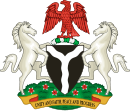| This article is part of a series in |
| Culture of Nigeria |
|---|
 |
Igbo literature encompasses both oral and written works of fiction and nonfiction created by the Igbo people in the Igbo language. This literary tradition reflects the cultural heritage, history, and linguistic diversity of the Igbo community. The roots of Igbo literature trace back to ancient oral traditions that included chants, folk songs, narrative poetry, and storytelling. These oral narratives were frequently recited during rituals, childbirth ceremonies, and gatherings. Proverbs and riddles were also used to convey wisdom and entertain children.
The emergence of written Igbo literature can be dated to the late 19th century, coinciding with the arrival of Christian missionaries who published Igbo religious journals and books, contributing to the development of modern Igbo literature. Early works in the Igbo language include History of the Mission of the Evangelical Brothers in the Caribbean (1777) and The Interesting Narrative of the Life of Olaudah Equiano (1789), which incorporated Igbo terms and aspects of Igbo life. Christian missionary societies, such as the Church Missionary Society, played a role in the transition from oral to written literature in Igbo land. Missionaries like Edwin Norris and John Clarke translated and published Igbo vocabularies and grammatical elements.
The "Isuama period," characterised by the use of the Isuama dialect, gave way to the Union Igbo period, which utilised the dialects of Owerri and Umuahia for translations. Notable translations, including the New and Old Testaments, expanded the written Igbo literary canon. Traditional Igbo theatre, often associated with communal festivals and masquerade dramas, presented a unique form of "total theatre." With the colonial era came adaptations of these traditions, incorporating socio-political themes. Contemporary written Igbo theatre and poetry began to flourish after the Nigerian Civil War, serving as a means of political expression and resistance. Writers like Anthony Uchenna Ubesie, and Julie Onwuchekwa played roles in the development of modern Igbo literary works.
